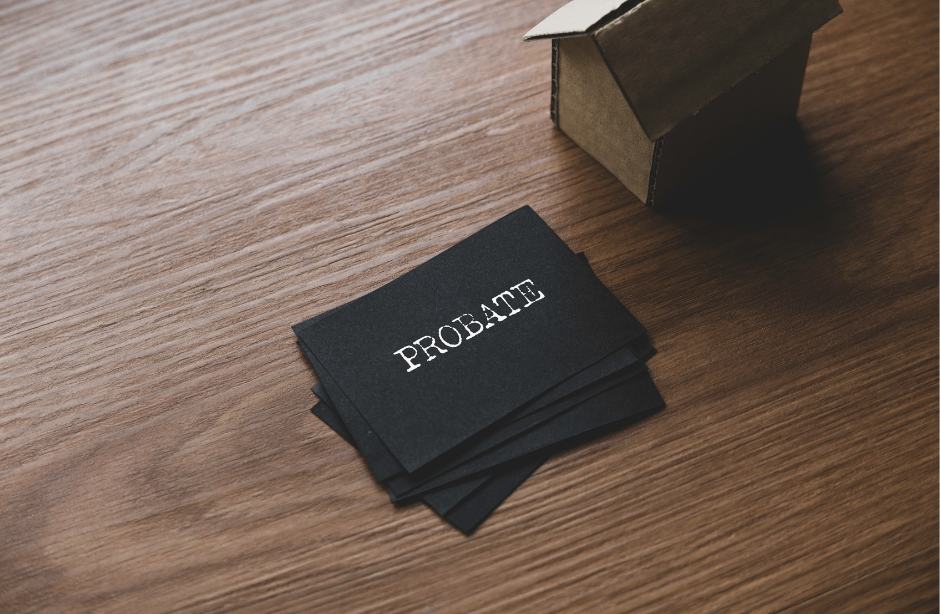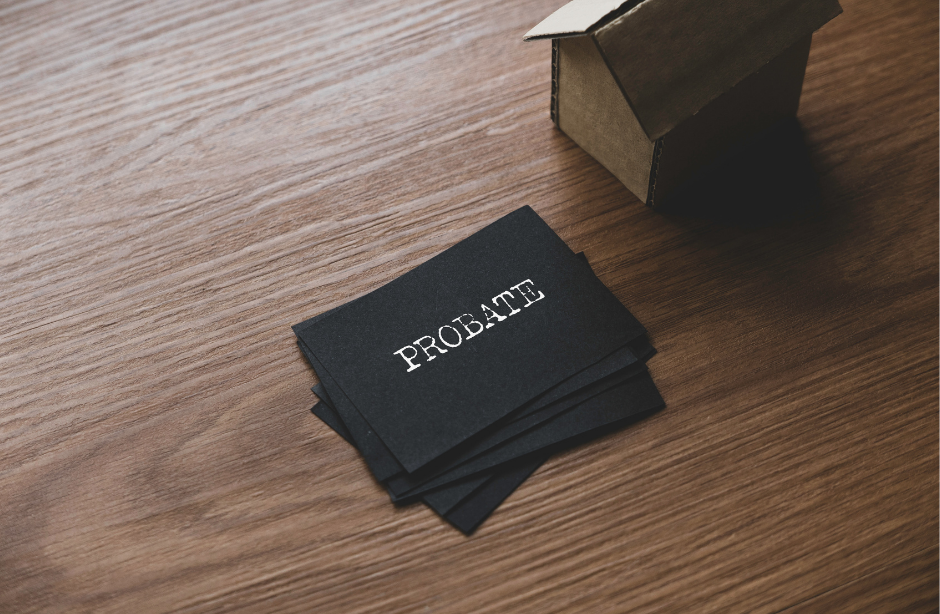When someone passes away in California, their estate often goes through probate — the court-supervised process of settling debts and distributing assets. But what happens if the person who died still owed money and their estate includes a house with debt attached?
This situation is more common than many families realize. Mortgages, home equity loans, credit cards, and medical bills don’t simply disappear after death. Instead, they must be resolved during probate before heirs can inherit. That can make things complicated, especially when a house is the estate’s biggest asset.
In this guide, we’ll explain what happens to a house in probate when debt is involved, what families should expect from the process, and how to handle it if you’re inheriting property with obligations attached. For a complete overview of the process, see our 2025 Guide to Selling a House in Probate in California.

How Debt Is Handled in Probate
Probate law in California requires that debts and liabilities are paid before heirs receive any inheritance. That means if there’s a mortgage, credit card debt, or unpaid medical bills, those claims must be settled out of the estate first.
Mortgages and Home Loans
If there’s still a mortgage on the home, the lender has the right to be repaid. Typically, this happens in one of three ways:
- Heirs continue making payments if they want to keep the property.
- The estate pays off the mortgage using other assets.
- The house is sold, and the proceeds are used to pay the loan balance.
Example: A family in Riverside inherited their mother’s house with a $250,000 mortgage. None of the heirs wanted to live in the property, so the executor sold the home for $480,000, paid off the mortgage, and split the remaining funds among the heirs.
Other Debts
Credit card balances, medical bills, and personal loans are also considered valid debts of the estate. Creditors must file claims during the probate process, and the court will prioritize paying them out of estate assets before distributions to heirs.
According to the California Courts Self-Help Center, executors are legally required to notify creditors of the probate process so they have an opportunity to make claims.
The Federal Trade Commission (FTC) explains that while relatives are generally not responsible for a deceased person’s debt, mortgages and other secured loans must still be paid from the estate.
What If the Estate Doesn’t Have Enough Money?
Sometimes, the estate’s debts exceed its assets. In this case, the estate is considered insolvent, and not all creditors will be paid. The court follows a strict order of priority:
- Funeral expenses and administrative costs.
- Secured debts (like mortgages).
- Taxes.
- Unsecured debts (like credit cards).
If there isn’t enough money to go around, lower-priority creditors may not get paid at all.
Example: A man in Los Angeles passed away leaving a house worth $400,000 and $500,000 in debt. After the mortgage and taxes were paid, there wasn’t enough left to cover all credit card bills. Those creditors had to write off the loss, and heirs received nothing.
What Happens to the House During Probate With Debt?
When a house in probate has debt attached, there are a few possible scenarios:
Heirs Want to Keep the House
If heirs want to keep the home, they must take responsibility for the mortgage. This often means continuing payments or refinancing into their own names. California law allows some heirs to assume a mortgage without triggering a “due-on-sale” clause, but the lender must still approve the transfer.
The House Must Be Sold
If the estate can’t pay debts otherwise, the executor may need to sell the house to satisfy creditors. The court oversees this process, and the sale may require approval. Selling a probate property can take 6–12 months, depending on the court schedule and market conditions.
Example: In San Diego, siblings inherited a house with a $320,000 mortgage and $75,000 in medical debt. To cover the debts, the executor sold the property, paid off obligations, and distributed what was left.
The Home Has No Equity
If the debt on the house equals or exceeds its market value, heirs may decide to disclaim the inheritance or allow the lender to foreclose. This prevents heirs from taking on more financial responsibility than the home is worth.
Selling a House in Probate With Debt
In many cases, selling the house is the simplest way to resolve probate debts. Here’s why:
- It converts the property into cash, which makes it easy to pay creditors.
- It avoids foreclosure if the mortgage isn’t being paid.
- It can provide heirs with a clean break and whatever equity remains.
Traditional Sale
The executor can list the property on the MLS, but the sale must follow probate rules. This often means court approval and longer timelines.
Cash Buyer Sale
Working with a cash buyer can speed things up significantly. Cash buyers often purchase probate properties “as-is,” which eliminates the need for repairs or cleaning.
The American Bar Association notes that probate sales often face delays and strict procedures, but selling to a cash buyer can reduce stress for families.
Strategies for Families Facing Probate With Debt
- Communicate Early: Executors should inform heirs and creditors about debts as soon as possible.
- Consider a Cash Sale: Selling quickly can minimize carrying costs like taxes and insurance.
- Seek Legal Advice: An experienced probate attorney can guide you through creditor claims and protect heirs’ interests.
- Don’t Delay Payments: If you plan to keep the home, keep mortgage payments current during probate to avoid foreclosure.
Example: A daughter in Pasadena inherited her father’s house but wanted to keep it. By continuing mortgage payments during probate, she avoided foreclosure and later refinanced into her name.
Final Thoughts
When a house in probate has debt in California, creditors always get paid first. Mortgages, medical bills, and other claims must be resolved before heirs see any inheritance. Sometimes that means heirs can keep the property, but often it means selling the house to pay off obligations.
The good news? Families don’t have to navigate it alone. Selling to a cash buyer can simplify the process, cover debts, and prevent drawn-out court battles.
For a full breakdown of the probate process, check out our 2025 Guide to Selling a House in Probate in California.
At Mrs. Property Solutions, we’ve helped families all over California settle probate debts quickly by purchasing houses for cash. If you’re facing probate with debt, reach out to us today — we’d be glad to help.

